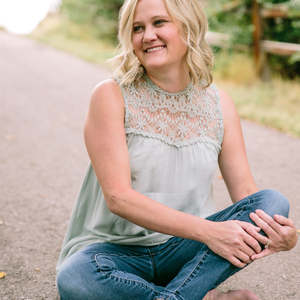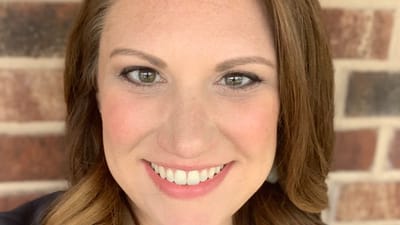Is It Picky Eating or Avoidant Restrictive Food Intake Disorder (ARFID)?
Mental Note is available on Apple Podcasts, Spotify, Stitcher, or wherever you get your podcasts. Search for Mental Note, and subscribe so you never miss an episode!
So perhaps your child - or even you or another adult - is really particular about food and refuses to eat but you just cannot understand why. You can tell their mealtime anxiety is not normal but how do you know if it adds up to a full-blown eating disorder?
That's why we made today's episode. It's an introduction to one of the least understood eating disorders - ARFID (Avoidant Restrictive Food Intake Disorder). ARFID remains underdiagnosed and can even be dismissed as simple picky eating. But ignoring it can have deadly consequences.
So join us as we cover the basics about ARFID and the next steps needed for getting help: taking action, talking to doctors, and understanding different approaches to treatment.
Transcript
Jessica Ham:
Looking back hindsight, it was early. Definitely, it was as we were introducing solid foods, she was much more picky than her sisters, but it was to a level of anger. I still remember giving them, for the first time, crackers with tuna salad on top. Next thing I know, I'm smacked in the head with it and she threw it at me.
Jessica Ham:
As mother of four and mental health professional, Jessica Ham, began introducing foods to her daughter, Addie. She was concerned to find her daughter's anxiety and anger only increasing with more food exposure, something Jess continued to talk about with their pediatrician.
Jessica Ham:
I would bring up that I felt like nutritionally, she was not getting what she needed. I brought up the picky eating. I brought up the tantrums but I felt like I just kept getting kind of, "Okay, well, they're just on their own growth pattern." But when you get to ages five and six, her eyes were sunken and she was wearing layers and layers and layers of clothes, no matter what the season was or where she went. Signs of other types of eating disorders, but for her, she couldn't keep her body heat up. She was cold. She was frail. I asked for a nutritionist referral. Finally, the nutritionist try and sneak in some extra fat and that sort of thing into her meals. I think for like a month, Addie wasn't having it. If she could detect anything at all different tried to mix into something, straight up no, was not going to have it. We saw a psychiatrist and he saw her two or three times. He was the one that introduced us to the world of ARFID.
Jessica Ham:
Avoidant Restrictive Food Intake Disorder, ARFID, even the name sounds alien and difficult to understand, but it's a diagnosis thousands of parents and medical professionals are learning to recognize as the frightening place that exists beyond picky eating, a place where someone's relationship with food is impairing their health, emotions and vitality. But where is the line that distinguishes between a picky eater and a serious disorder? How can you begin to know when your child, friends, spouse or loved one is moving into this danger zone? Well, today is all about wrestling this frustratingly mysterious disorder into something that makes sense. We'll answer the basics about ARFID and then explore next steps like when we can take action, how to navigate talking to doctors and what are some different approaches to treatment. From Eating Recovery Center and Pathlight Mood and Anxiety Center, you are listening to Mental Note Podcast. I'm Ellie Pike. We'll hear more about Jess and her daughter's ARFID diagnosis in a minute, but first I want to introduce you to Dr. Ovidio Bermudez.
Dr. Bermudez:
My name is Ovidio Bermudez. I'm a pediatrician by training, have been working with eating disorders for a little north of three decades and certainly have taken an interest and seen ARFID evolve as something that is still, I think, poorly understood even by the healthcare community in general.
Jessica Ham:
Dr. Bermudez is the Senior Medical Director of Child and Adolescent Services, as well as the Chief Clinical Education Officer at Eating Recovery center. He's been a leader in this field for longer than ARFID has even been recognized as a disorder. He'll bring those years of experience to help us tease apart ARFID and better understand how it affects patients and families. More importantly, Dr. Bermudez is highly respected because of his genuine care for each patient and his relatability with families.
Dr. Bermudez:
Part of my hope today is that I get to share with you some of the things that we have learned so far at Eating Recovery Center, as we have sort of conceptualized ARFID cases and categorized ARFID cases and develop ways to not just understand them, but treat them effectively, as well. ARFID is a new diagnosis. It came with the fifth edition of the Diagnostic and Statistical Manual. The intent of the diagnoses is to say, "Look, there are people who avoid their food intake in a meaningful way, in a clinically significant way, either because they restrict their intake or because they avoid certain things, certain experiences," if you will. That bifurcation is really important because right off the bat, right off the cuff, the DSM is saying, "It's one or the other." ARFID is not just ARFID, restrictive ARFID can be and is, turns out it is, very different from avoidant ARFID.
Jessica Ham:
Dr. B, that's really helpful information as we talk through, because I know there are so many families that have a lot of hurdles to jump through to get that diagnosis. Oftentimes, families are even coming to their providers with information about ARFID and asking, "Could this be possibly what my child or loved one is going through?" Can you talk a little bit about what the diagnostic criteria is for ARFID and what people should know?
Dr. Bermudez:
Absolutely. The diagnostic criteria essentially say, "Look, this person is having insufficient intake to either affect their system, in a negative way, physiologically or psychologically." However, this insufficient intake is not based on drive for thinness, body image dissatisfaction in the sense of anorexia or body image distortion. Meaning that, what you tended to see and as people try to depict anorexia, somebody really thin looking themselves in the mirror and seeing somebody really large, that's a distortion and none of those are really present in ARFID. In other words, the reason for the food restriction is not because people are saying, "I'm going on a diet and I want to lose weight." It's not because they're saying, "Gee, I want to be healthier and join a gym and start working out."
Dr. Bermudez:
It's not because they say, "I don't like my body and I want to shape it differently." And it's not because they say, "Gee, even though I'm normal size, I see myself as larger size." Those are not, and that's really confusing. It's really confusing for families. It's really confusing for clinicians. For me, in clinical experiences in caring for these patient population has been as young as seven and as old as 62 years of age, because one of the characteristics of all ARFID presentations is that they're across the lifespan, from early childhood throughout. You could have been a non-ARFID like person, and one day you are 27 years old and somebody chokes in front of you and that day you go home and start to worry about this. By the time you're 30, you're hospitalized with ARFID because you're afraid of choking when you eat. One can actually be a normal weighted, normal growth ARFID individual, and that's really, really important to realize.
Jessica Ham:
I'd like to ask a little bit more about that because I find that to be really interesting. This is probably where a lot of people kind of fly under their radar. They're not losing weight. They're probably a picky eater or picky about the way that their food is prepared. But when you say significant psychological impact, could that be, maybe they're still going to their friends' houses, or maybe they're still going out to eat with friends, but still choosing not to eat because it's not prepared the way that they would like. Is that significant impact?
Dr. Bermudez:
It's different strokes for different folks, but I mean, the language of criterion A4, which is where that comes in the DSM-5, is marked interference with psychosocial functioning. Now, you have to put that in an age appropriate, developmentally appropriate, sort of context. For an adult that may be, they really can model healthy eating for their children. They eat meat and bread and nothing else, literally. How do you tell your kid, "Hey, finish your vegetables." When you can't, when you don't. Yes, I think that a family, a person should not wait for the weight loss to be concerned. I think that there's other layers of concern.
Jessica Ham:
That's incredibly important, I think, for our audience to hear and to pay attention to. That's why we invited you on the podcast today to really talk about that differentiation between picky eating and when to identify this could be something that needs a little bit more medical attention and may require a diagnosis of ARFID. Could you dive into some of the characteristics of avoidant restrictive food intake disorder?
Dr. Bermudez:
Absolutely. I'll give you one example. A picky eater that is developing normally, maybe somebody, a little kid that taste the food and that day dislikes it, you and I taste food all the time that, that day we dislike, right? Usually, a non-problematic eater will reject that food for a while. "I don't want soup with noodles in it because the last time I had soup with noodles in it, it wasn't good for me." But typically after a while, that kid will circle back and be willing to try again. Now, if a kid starts to develop a pattern of, "I don't like something and I'll never have it again. And then I don't like the next thing, and I'll never have it again." You have to say to yourself, "Boy, that's usually not the way it goes. That's usually not the way it goes, developmentally."
Dr. Bermudez:
That's one way I think that parents can say, "Hey, my kids' a little bit more selective, a little bit more picky, but he or she is willing to come back to foods and put dislikes back into their repertoire of acceptable liked foods." If my kid is just, Xing out food after food after food, that is certainly a concern. I think the other aspect is, does it bring any kind of functional impairment? Certainly, biologically speaking, physiologically speaking, if you have somebody restricting their intake because of dislikes and selectivity and pickiness and their growth is a concern, they have stopped gaining weight. They have lost weight. They have stopped gaining height as they should appropriately, that's a concern. Functionally, in the sense of their psychological well-being, what if a kid starts to avoid situations because, "I don't eat birthday cake." Or "I don't eat yellow birthday cake so I don't want to go to a party with my friends because maybe there is yellow cake. If it was brown cake, I would be fine. But since I don't know, I won't go to the party."
Dr. Bermudez:
That begins to say, "Wait a minute." Again, if it was one thing and one thing only, but if you start to go down, that increases that experience is growing and growing and growing, you have to ask yourself, "Is this some sort of psychosocial impairment that this kid's beginning to move in the direction of?" Does that make sense?
Jessica Ham:
It does. I could also think of some examples of kids in my life where perhaps it's not just what kind of food, but how it's prepared and not being concerned about calories and weights, but truly about like the consistency of the food or how it looks or the texture of the food. Is that something that you notice with other kids or adults who have ARFID?
Dr. Bermudez:
Absolutely. One more thing I want to tell you. Anxiety has a lot to do with that. We live in a spectrum of from the more anxious to the less anxious. Anxiety is a trait state. We have trait anxious features that are part of our personality and are normal, and that can move and get to a state of clinical anxiety.
Dr. Bermudez:
More baseline anxious individuals tend to be more avoidant and perhaps be more concerned about situations. When you say, you talked about how a food is prepared. Well, when you're less likely to be anxious and a little obsessive and a little compulsive, you're, by far less likely to focus and pay attention to details like that. But when you're more on the higher end of that spectrum, you're, by far more likely, just based on your personality to pay attention and focus on things like that. That's another filter. It's not just our constitutional makeup, our personality makeup, but it's also how are we more worriers or are we less worriers. All of that sort of filters through the experiences. And of course food is at the heart of all that because, with oxygen and water is one of those necessities so of course it's at the heart of who we are and how we experience life and how we behave and et cetera, et cetera, et cetera.
Jessica Ham:
For Jess, anxiety played a critical role in the development of her daughter's ARFID case.
Jessica Ham:
What we teased out and discovered with Addie and her relationship with food through her therapist and then her nutritionist, and then her occupational therapist is that, that stubbornness, that anger, that refusal, shutdowns are anxiety. It would be over an hour of her sitting there going through anger and then crying. Eventually, maybe taking that one bite, but it wasn't worth that battle that I now know was just this anxiety and fear she had of trying this new food.
Jessica Ham:
What did that feel like for you as a parent to sit back and watch your kid just fully refuse something that is life giving to her, and that is necessary for her nutrition?
Jessica Ham:
It was very scary. I mean, seeing how tiny she was, seeing her wearing a shirt and an undershirt and a sweatshirt and a winter coat, no matter what the season was, all day in school, her teacher said she refused to take it off. Just seeing her with these circles under her eyes. It was really scary.
Jessica Ham:
Jess continued to feel more and more hopeless as she struggled to figure out what was fueling her daughter's anxious habits, and it wasn't until a chance discovery that their family began to see some hope.
Jessica Ham:
Well, her nutritionist was doing some exposures with her and noticed a problem with her chewing and referred us to occupational therapist that she's worked with quite a bit, who's also works with eating disordered children and teens. She said she was able, just by the list I provided at her of foods that Addie would and would not eat, without even seeing her chew, knew she'd missed a developmental milestone as a toddler on chewing. I think that's kind of the root, or at least one of the roots, or maybe several roots to this tree, but I think that was definitely one of the roots to Addie's disorder is, as a toddler, I can remember her trying steak, which now, don't put one near her, but back then she would try it, but she would be chewing and chewing and chewing literally for 15 to 20 minutes until I would just say, "Spit it out."
Jessica Ham:
And that's where we missed, that she missed that milestone on chewing, which was very quick two or three week fix, just a couple exercises she practiced and now she can chew, but previously she just chomped up and down. The occupational therapist said, just based on the list of foods, she was only eating things that she could grind or chomp. We fixed that, but we haven't fixed her relationship with food yet, because it's been 12 years of her classifying those foods as bad because as a toddler, she couldn't eat them.
Jessica Ham:
Here's Dr. Bermudez again, to walk us through what treatment can look like.
Dr. Bermudez:
I mean, the most important thing is to have an accurate diagnosis. Just like with anorexia or bulimia, I mean, the treatment of anorexia and bulimia are different. The treatment of restrictive ARFID is different than the treatment of avoidant ARFID and is different yet, than the treatment of aversive ARFID. One size does not fit all, one approach is not good for everybody.
Jessica Ham:
That's incredibly important, I think for our audience to hear and to pay attention to. If they do have concern, how do they go about finding an accurate diagnosis, and what's the first step towards outpatient treatment?
Dr. Bermudez:
You want to be an informed consumer and important that once the diagnosis is suspected, the diagnosis is verified by clinicians with experience, usually multidisciplinary. So if your pediatrician suspects a case of, let's just say it's restrictive ARFID. Well, they should make a referral to a therapist and a dietician with knowledge and some degree of expertise in that and there should be a consensus with that diagnosis and treatment begins.
Jessica Ham:
Dr. Bermudez says that once treatment begins, you really shouldn't waste time on treatment that's not working.
Dr. Bermudez:
I think one mistake is to just say, "I'm working with a dietician, I'm working with a therapist. My doctor is monitoring. We're trying. We're working hard, but nothing is changing." And we just say, "Let's give it more time." That's not what the literature implies at this point. I think what is recommended at this point is to say, "If this approach is going to work, we should start to see measurable improvement very quickly. And if not, we need to go to plan B." Sometimes plan B means, a hospitalization or a residential treatment intervention or a partial hospitalization program, which can be very scary for families, and you sort of question, "Gee, is this the right thing to do?" In my opinion, it is, in the sense that, again, time in the behaviors is not your friend. Time in the behaviors means the brain continues to say, "This is the norm. This is okay."
Dr. Bermudez:
And so interruption of behaviors becomes really important. Sometimes, you need a jumpstart for that to actually happen. The advantage of having to go into a treatment facility is that you really jumpstart the process. Symptom interruption becomes more viable, and then learning the practice of structured eating, or exposure and response prevention and really tapping into directly challenging the symptoms becomes, by far, more doable. I think it's about accurate diagnosis, being in expert hands. Don't letting time pass just for the sake of passing and being decisive and definitive in the interventions that are chosen according to the needs of the patient at that particular time.
Jessica Ham:
Thank you. I think that's really important, especially as it is easy to let symptoms just kind of continue to pass, kind of keep an eye on if things are changing or not, but it's really hard when someone is that close to the individual. We often get immune, essentially, to what's actually happening if we're constantly around this individual. In other situations, we might just constantly be alarmed. We might be, what was the phrase you used, just going down the wrong paths and trying to check out all the other things that might be wrong. I'm hearing you say, "Don't let the habit continue." And as our brains really continue in these negative behaviors, it gets harder to interrupt that behavior and start to change it. The sooner we intervene, the better. The second thing I'd like for you to talk about is, is their hope, is it really reversible? Can people actually get better? What does that trajectory look like?
Dr. Bermudez:
There is absolutely hope. We see patients not just get better, but get well, which means that they are still themselves. I mean, a lot of patients and a lot families, "Are they going to change my child? Are they going to change me?" The answer is no, we can't change the individual, but we can certainly change behavior patterns and address a pathology that can be life threatening. So yes, there is hope. Yes, we see patients clearly respond to treatment. We also see patients relapse. We got to be careful not to say treatment is a panacea that changes all the underlying premises. Treatment leaves you who you are so the risk of relapse is there. That's not a failure of the treatment, that's a reflection that these are developmental illnesses that the vulnerability to which continues to journey with us, so to speak.
Dr. Bermudez:
These are not static circumstances. These are fluid circumstances that change from time to time. You may have had somebody with the exact same ARFID tendencies and somewhat struggles in behaviors and ninth grade becomes the hurdle. Entering the high school becomes the hurdle, that's sort of the, what breaks the camels back. I wouldn't say a straw because entering high school is not necessarily a straw. Entering college is the same thing. You have to sort of think about the fact that development and who we are, as people, matters when we sort of thinking about how to understand this pathology, how to address it, conceptualize it appropriately and how to treat it in an effective way.
Jessica Ham:
Thank you so much, Dr. Bermudez. I think that this really is going to set the playbook for an individual or a family who is starting to look into this diagnosis, differentiate it from picky eating or from an other eating disorder and know where to start with just getting a diagnosis, knowing that treatment is available on the outpatient level, as well as in higher levels of care. That hope is there. All of us medical providers are out there waiting to help, but it does take a lot of discernment on the individual and the family's part to find the right treatment providers along the way. Fortunately, Jess is one of those parents who did not rest until she started to find a treatment plan that created measurable results for her daughter.
Jessica Ham:
And the change over the last year, she's gained about 15 pounds over the last year, I think, and the change is amazing. The circles are no longer sunken in. She can maintain her body heat, which is so nice. I hadn't seen her legs since she was like five years old, because she would only wear sweatpants and she's wanting to get into a sport now because she knows she's at a safe weight where she maintains it, she'll be able to do it. And that confidence in her has been amazing. It's still a battle. It's still a battle daily, but she's starting to take more responsibility for it. I don't have to constantly say, "Have you had your shake today? What have you eaten? How much have you eaten? Have you weighed yourself lately?" She's taking that stuff on her own.
Jessica Ham:
Sounds like it's a majorly collaborative effort between the treatment team, you as a parent and then Addie as her own individual self learning to make choices that are healthy for her. I imagine you're hopeful that she really can heal her relationship with food, but you're also very aware that it takes time and a lot of help along the way. If you're new to researching ARFID, I know we threw a lot of information at you, from definitions and hurdles to treatment plans and expectations. I think the most critical thing to keep in mind is the importance of taking action now. I'll list some resources in a minute and we'll also have them in our show notes, but I think it's best to let Jess close us out by explaining what she wishes she had known in hindsight.
Jessica Ham:
I definitely wish I had spoken up more. I've learned that doctors don't know everything. I would say listen to your mother's intuition and if you think something isn't right, continue to figure out what's wrong rather than just listening to the doctor saying, "She's on her own growth chart, she'll be fine." And even just the developmental milestone, that could have been caught so much earlier and I have mom guilt about that. So I wish I'd been more aware that ARFID was even a thing much earlier. That's why I'm so excited about this podcast because people just don't know about it. I didn't. And then when I talked to people about Addie and which she has ARFID, other mental health professionals, they say, "She has what?" I feel like ARFID is probably still very misdiagnosed or missed. There are a lot of other parents out there struggling with, why won't my child eat?
Jessica Ham:
If you'd like to learn more about ARFID, here's a fast way to get help. Go to eatingrecovery.com/arfidresources to find videos, websites, articles, and books to help you learn more. Again, that's eatingrecovery.com/ A-R-F-I-D resources. Remember treatment is all about accurate diagnosis. Being an expert hands, not letting time pass, and using decisive interventions that produce measurable results. Mental Note Podcast is brought to you by Eating Recovery Center and Pathlight Mood and Anxiety Center. If you'd like to talk to a trained therapist to see if treatment is right for you, please call them at 877-850-7199 or go to eatingrecovery.com. If you're a parent wanting a free support group, go to eatingrecovery.com/support-groups. If you like our show, sign up for our eNewsletter and learn more about the people we interview @mentalnotepodcast.com. We'd also love it if you left us a review on iTunes, it helps others find our podcast. Mental Note is produced and hosted by me, Ellie Pike and directed and edited by Sam Pike. Till next time.
Presented by
Presented by
Ovidio Bermudez, MD, FAAP, FSAHM, FAED, F.iaedp, CEDS





